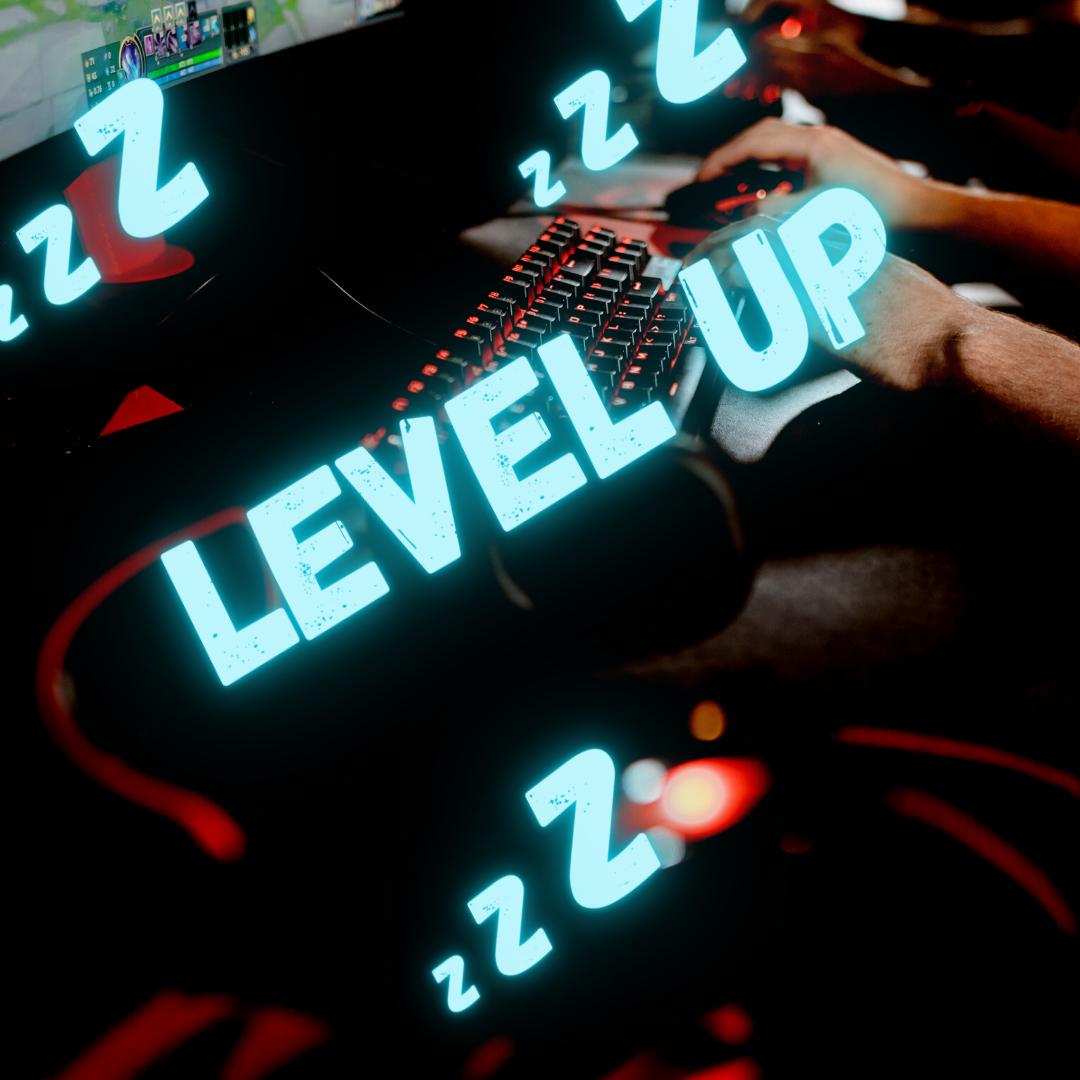As the popularity of video games continues to soar, more and more people are spending significant amounts of time gaming. While gaming can be a fun and engaging activity, it is important for gamers to consider the impact of their gaming habits on their overall health and wellbeing, including their sleep. In this article, we will explore the topic of "gamer sleep," and why a good night's rest is crucial for gamers to maintain their physical and mental health.
Getting enough sleep is important for everyone, but it is especially important for gamers who spend long hours in front of a screen. The effects of sleep deprivation can be particularly detrimental to gamers, as it can impact their cognitive abilities, emotional regulation, and overall performance. Therefore, it is essential for gamers to prioritize getting enough high-quality sleep in order to maintain optimal health and maximize their gaming abilities.
In the following sections, we will delve into some key questions related to gamer sleep, including how gaming affects sleep, how many hours of sleep gamers typically get, and how to improve sleep habits as a gamer. We will also touch on some health risks associated with gaming, and introduce a drinkable sleep aid designed specifically for gamers that can be used for added assistance when trying to get sleep.
II. How Gaming Negatively Affects Your Sleep
One common question among gamers is whether or not gaming can affect their sleep. Numerous studies have shown that gaming can have a negative impact on your sleep quality in different ways. The three most common causes of what can cause gaming related insomnia or sleep deprivation are
-
Blue Light: The blue light emitted by screens on gaming devices can disrupt the body's natural sleep-wake cycle, also known as the circadian rhythm. Exposure to blue light can suppress the production of the sleep hormone melatonin, which can make it more difficult to fall asleep. According to a study published in the Journal of Psychiatric Research, exposure to blue light from screens at night can lead to irregular sleep patterns and insomnia.
-
Excitement and Stimulation: Gaming can be an exciting and stimulating activity that can keep your brain active and engaged long after you've put down the controller. This can make it difficult to wind down and fall asleep. A study published in the Journal of Sleep Research found that playing video games before bedtime can lead to longer sleep latency (the time it takes to fall asleep) and shorter sleep duration.
-
Gaming Addiction: Gaming addiction is a recognized mental health disorder that can have a significant impact on a person's life, including their sleep. According to a study published in the Journal of Sleep Research, individuals with gaming addiction are more likely to have irregular sleep patterns, experience excessive daytime sleepiness, and have poor sleep quality.

III. How many hours of sleep do gamers get?

Another important question to consider is how many hours of sleep gamers typically get. Studies have shown that gamers tend to get less sleep than the average person. For instance, a recent study conducted by gamblingdeals.com gathered data on the sleep habits of 7,933 gamers found that:
-
On average, gamers get 6 hours and 20 minutes of sleep per night.
-
More than half of the gamers surveyed reported getting less than 7 hours of sleep per night.
-
23% of the gamers surveyed reported getting less than 6 hours of sleep per night.
These findings are concerning, as the National Sleep Foundation recommends that adults aim for 7-9 hours of sleep per night. Lack of sleep can have a negative impact on your health and well-being, including increased risk for obesity, diabetes, heart disease, and depression. It can also have a negative impact on your gaming performance, as we discussed in section II.
It is important to note that the amount of sleep each individual needs can vary, and that some gamers may function well on less sleep than others. However, it is generally recommended that gamers prioritize getting enough sleep in order to perform at their best both in and out of the gaming world.
IV. Do pro gamers sleep?
one group of gamers who may face particular challenges when it comes to sleep is professional gamers. Pro gamers often participate in grueling training schedules and competitions that can last for hours or even days at a time. As a result, their sleep schedules may be irregular, and they may be more prone to sleep deprivation and sleep disorders.
Despite these challenges, sleep is crucial for pro gamers to perform at their best. In fact, some pro gaming organizations have started to prioritize sleep as a key component of their training regimens, providing players with sleep coaches and other resources to help them get the rest they need.
V. Is it unhealthy to be a gamer?

While gaming can be a fun and engaging hobby, it is important to consider the potential health risks associated with excessive gaming. These risks can include physical issues such as back pain, carpal tunnel syndrome, and eye strain, as well as mental health concerns such as gaming addiction, social isolation, and anxiety.
(We curated a list of tips and trick to improve your gameplay and health in our article 10 life changes YOU need to make to become a pro gamer check it out!)
However, it is important to note that gaming itself is not inherently unhealthy, and that balance and moderation are key. By prioritizing good sleep habits, taking breaks to stretch and move around, and seeking help if gaming addiction is impacting their lives, gamers can enjoy the many benefits of gaming without putting their health
VI. How to Fix Your Sleep Schedule as a Gamer
As a gamer, you may be wondering how to improve your sleep schedule while still enjoying your hobby. Here are some tips to help you get better sleep:
-
Limit screen time before bed: Blue light from screens can disrupt your body's natural circadian rhythm and make it difficult to fall asleep. Try to limit screen time at least an hour before bedtime.
-
Establish a consistent sleep schedule: It's important to establish a consistent sleep schedule to regulate your body's natural sleep-wake cycle. Try to go to bed and wake up at the same time every day, even on weekends.
-
Create a relaxing bedtime routine: Create a relaxing bedtime routine to help you wind down and prepare for sleep. This can include taking a warm bath, reading a book, or listening to calming music.
-
Use sleep aids: If you're having trouble falling asleep, you may want to consider using sleep aids like the CutScene drinkable sleep aid. This drink mix is specially designed for gamers and contains magnesium, melatonin, and valerian root, which can help promote relaxation and better sleep. (Check out the How It Works to discover why CutScene is a great help for gamers trying to sleep)
-
Make your bedroom sleep-friendly: Your bedroom should be a comfortable and relaxing environment. Make sure the temperature is cool and comfortable, and block out any noise or light that may disrupt your sleep.
By following these tips, you can improve your sleep habits and get better rest, even as a gamer. Remember, sleep is crucial for your overall health and well-being, and taking care of your sleep is just as important as taking care of your gaming skills.
(Trying to figure out why you can’t fall asleep? We wrote a great deep dive article on why gamers cannot sleep and why melatonin probably isn’t working for you: Check it out.)

IX. Conclusion
In conclusion, sleep is crucial for gamers to perform at their best and maintain good health. While gaming can have a negative impact on sleep, there are steps gamers can take to improve their sleep habits and get better rest. With the right balance and strategies, gamers can continue to enjoy their favorite hobby while also prioritizing their sleep and overall well-being.




Leave a comment
All comments are moderated before being published.
This site is protected by hCaptcha and the hCaptcha Privacy Policy and Terms of Service apply.